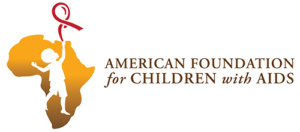There are 15 million AIDS orphans worldwide, with about 14 million of whom live in Sub-Saharan Africa, according to UNAIDS (UNAIDS, 2010). These orphans suffer from a multitude of problems even before they lose one or both of their parents.
As their HIV+ parent becomes sick, children not only need to take care of their ill parent but also look after their younger siblings, do housework and work to support the family. Along the way and after they are orphaned, they have to adjust to a new situation with little or no support. One study reports that anxiety, depression and anger were found more in AIDS orphans than other children in rural Uganda. 12% of them answered that they wished they were dead.
AIDS orphans are faced with various forms of deprivation as well. They lack access to clean water, food, shelters, clothing, health and education, all of which are basic human needs.
Through our Project One Million, however, these can change forever.
Please watch the Project One Million video and learn what we do for AIDS orphans in Uganda, Zimbabwe, the Democratic Republic of Congo and Kenya. If you would like to do something, well, you CAN! Share the video on social media, talk or blog about the project, or make a donation. Would you consider making 10 acts of kindness today?
One HIV testing kit can determine a child’s HIV status and help the local workers decide how they can enjoy as many opportunities as possible. It is important for every AIDS orphan gets tested for HIV because not all of them have been contracted with the virus through their mothers.
One month of antibiotics and a day of medicine will greatly help a child to stay healthy and combat HIV. UNICEF reports about 29,000 children under the age of five die each day mainly from preventable diseases such as diarrhea, malaria, neonatal infection and pneumonia, not to mention HIV+ children will need anti-retro viral (ARV) every day to prevent HIV from multiplying. Clean water will help reduce the risk of contracting infectious diseases, too.
Food and seed for gardens will strengthen them to fight illnesses and live without feeling hungry (we all know how hard it is to get by the day with an empty stomach).
Above all, by receiving support they will know somebody cares about them somewhere, that they are not left alone and that they have hope.
Issues around AIDS orphans are interlinked and there is no one solution to all of them, but the good news is that one step forward in one of them can improve the whole matter. Let’s act today!
I will write more on the HIV testing kit in my next blog.
– Mariko Siegert, volunteer

